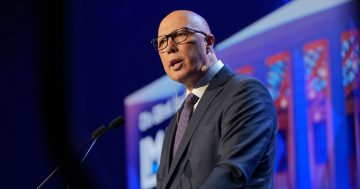Lisa Earle McLeod* says leaders should accept that mistakes are inevitable in the daily workplace hustle — the problem comes when they result from apathy rather than enthusiasm.
 Most leaders recognise their teams will make mistakes. The challenge is, all mistakes are not equal.
Most leaders recognise their teams will make mistakes. The challenge is, all mistakes are not equal.
There’s a big difference between errors of apathy and errors of enthusiasm.
Errors of apathy are the kind of mistakes that happen when no one feels responsible, so everyone just passes the buck.
I’ve observed that organisations run by quantitative metrics and productivity measures (alone) are more likely to create a culture where errors of apathy are tolerated, even tacitly encouraged.
That’s because when leaders micro-measure everything, the driving force in the organisation is usually fear.
People are afraid to make an error, so they rarely challenge the status quo.
Errors of enthusiasm are driven by a desire for success. They occur when someone actually does something.
They’re born of hustle and innovation. They’re more public. The consequences are more immediate and the costs are obvious.
Purpose-driven leaders have very little patience for errors of apathy. Mistakes driven by a lack of engagement or ownership cut deeply.
What purpose-driven leaders are more receptive to, and in the best situations even encouraging of, are errors of enthusiasm.
I first recognised the distinction between errors of apathy and errors of enthusiasm when I was analysing my own performance many years ago.
In the early days of our business money was tight. As our revenue grew, we loosened up the purse strings.
One year, after we’d had our best year ever, we were reviewing our financial results. I saw that my travel expenses were huge.
I’d take several fairly expensive trips that had not resulted in closing any business.
I told my husband: “Next year, I want to make sure my win rate is higher on these trips.”
He said: “I think that’s a mistake. If you’re winning everything, you’re probably not trying hard enough.”
He was right; I wanted to be safe. I wanted every trip to pay off, but we’d just had our best year ever!
Much of our success was because I’d been willing to get on an aeroplane and put myself out there even when it wasn’t a sure win.
Through decades of consulting, I’ve come to realise the organisations who fail are the ones who fear failure the most.
The teams who put a rigorous metric on everything and who go to extreme lengths to minimise any potential collateral damage wind up creating an environment where no one wants to take risks.
This stymies innovation and creativity.
How a leader responds to mistakes sets the tone for the organisation. Healthy, innovative organisations take risks.
Not stupid, uncalculated risks, but risks nonetheless.
They make frequent errors of enthusiasm because they know that no one ever put a dent in the universe without making a few mistakes along the way.
*Lisa Earle McLeod is the leadership expert best known for creating the popular business concept Noble Purpose. She is the author of Selling with Noble Purpose and Leading with Noble Purpose. She can be contacted at mcleodandmore.com.
This article first appeared on Lisa’s blogsite.











